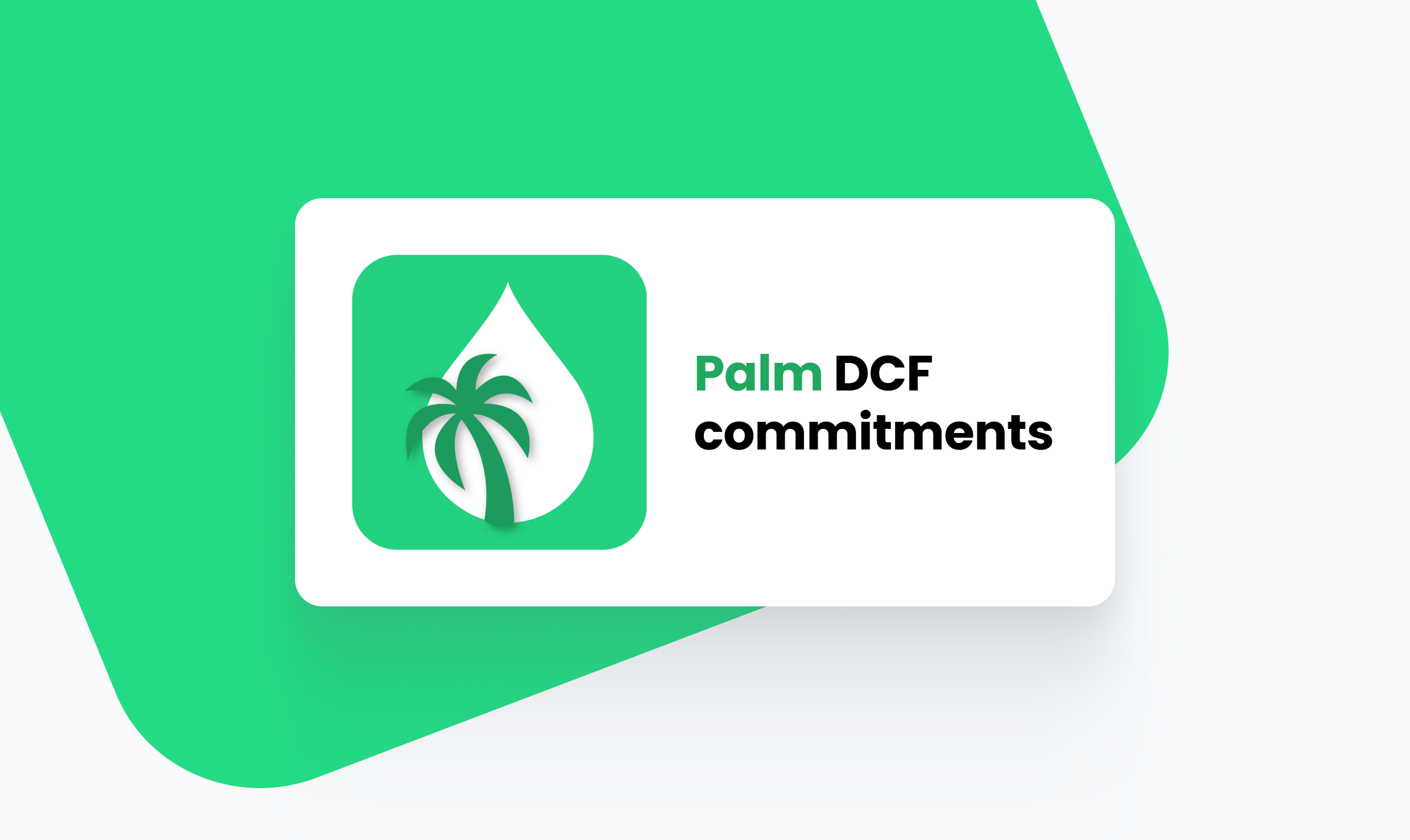Companies across the agriculture and commodities sectors are making bold commitments — to eliminate deforestation and land conversion, to protect human rights, and to reduce supply chain emissions.
Yet turning these promises into measurable progress is a complex challenge. Whether your business is working toward Deforestation- and Conversion-Free (DCF) supply chains, NDPE (No Deforestation, No Peat, No Exploitation) policies, or SBTi FLAG science-based climate targets (for Forest, Land and Agriculture), one core question remains: how do you verify that progress is real?
Meridia Verify provides a trusted, verifiable foundation for meeting voluntary sustainability commitments. Built on a decade of field and geospatial expertise, Verify delivers audit-ready insights into land use, compliance risks, and supplier performance, ensuring your sustainability goals are backed by credible data and a transparent methodology.
DCF: build stakeholder trust through verified intelligence
For companies with Deforestation- and Conversion-Free (DCF) commitments, Verify enables real-time, evidence-based assessments across global supply chains. The platform translates complex geospatial and legal data into actionable intelligence, helping you identify forest and ecosystem risks early and communicate progress with confidence.
Key advantages for DCF commitments:
- Track and report DCF progress with instant, audit-ready clarity.
- Identify risks of deforestation and ecosystem conversion across 40+ origins and 55+ agricultural commodities.
- Apply country-specific legality checks covering land use, indigenous rights, forced labour embargoes, and protected area rules.
- Assess against your own cut-off dates and ecosystem definitions.
- Identify high-risk suppliers and develop targeted remediation and engagement plans.
Built on an EY-audited methodology aligned with leading frameworks, such as The Accountability Framework initiative (AFi) and The Consumer Goods Forum (CGF). Verify offers transparency from data source to decision. Every test is versioned, documented, and fully traceable — giving your sustainability claims solid, verifiable ground.

NDPE: strengthen policy implementation and accountability
NDPE (No Deforestation, No Peat, No Exploitation) policies are a cornerstone of responsible sourcing in palm oil supply chains. Yet monitoring compliance — especially beyond direct suppliers — remains a significant operational hurdle.
Verify helps bridge this gap through its risk assessment and mitigation engine, which combines legal, environmental, and social indicators into a single, consistent framework. The platform enables you to identify risks of non-compliance across landscapes and pinpoint where remediation or supplier engagement is most needed.
Verify supports NDPE implementation by:
- Detecting the presence of recent deforestation or conversion in supplier-linked areas.
- Identifying overlaps with peatlands or areas of high conservation value.
- Flagging potential human rights and labour violations based on authoritative data sources.
- Providing supplier risk scoring and dashboards for engagement prioritisation.
By transforming NDPE principles into measurable, data-driven insights, Verify enables companies to produce credible progress reports that stakeholders can trust, while driving continuous improvement with suppliers across all origins.
SBTi FLAG: translate land-linked emissions into actionable reductions
The SBTi Forest, Land and Agriculture (FLAG) Guidance has redefined corporate climate accountability. Companies with agricultural value chains must now quantify and reduce emissions linked to deforestation, land-use change, and soil management, a task that depends on reliable geospatial and field data.
Verify offers a robust solution for generating consistent, location-specific land-use intelligence for FLAG-aligned reporting. By integrating deforestation tracking, ecosystem classification, and legality assessments, Verify provides the foundation for accurate Scope 3 and landscape-level emissions accounting.
How Verify supports SBTi FLAG targets:
- Aligns geospatial analysis with science-based methodology for transparent disclosure and validation.
- Establishing a baseline by detecting deforestation and conversion within the supply chain.
- Supporting verified disclosure of deforestation and conversion, as well as direct land use change emissions (dLUC powered by AdAstra).
With its rigorous, transparent data pipeline, Verify bridges the gap between environmental performance and climate reporting, ensuring your FLAG targets rest on verified, credible data.

Verify: one platform for multiple voluntary frameworks
Sustainability commitments may vary in focus—from land protection to labour rights to carbon reduction—but they all share the same foundation: the need for verified, trustworthy data.
Verify’s modular design makes it adaptable to voluntary frameworks across sectors and commodities, ensuring consistency and comparability while respecting local context.
Why companies rely on Verify:
- Independently audited methodology (EY, ISAE 3000).
- Transparent versioning and data source documentation.
- Seamless integration of global standards with national legality benchmarks.
- Accessible platform with intuitive workflows — no GIS expertise required.
As more companies shift from policy to performance, Verify helps ensure that sustainability promises translate into proof — measurable, credible, and trusted by stakeholders worldwide.
.png)
.png)
